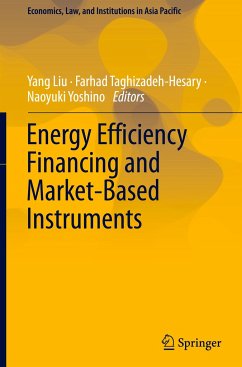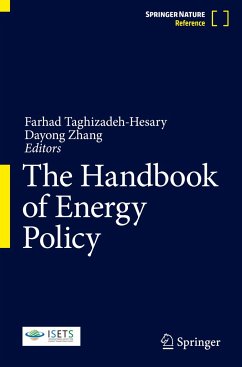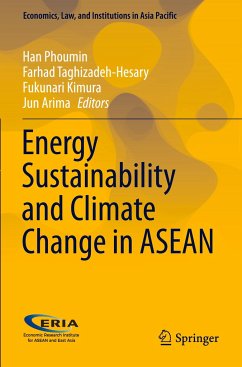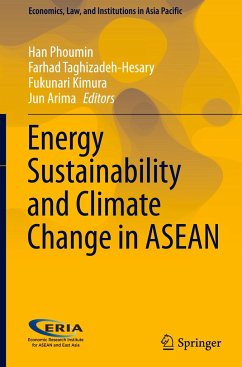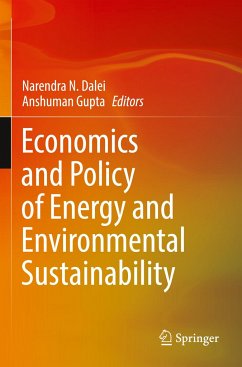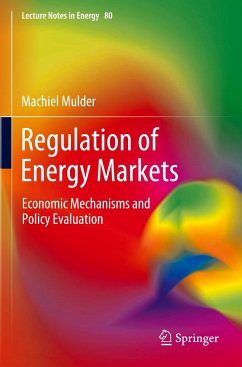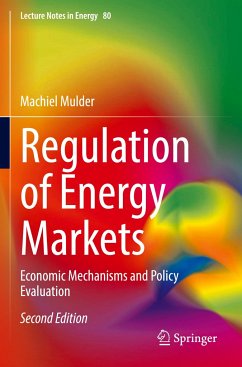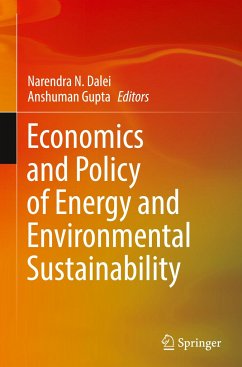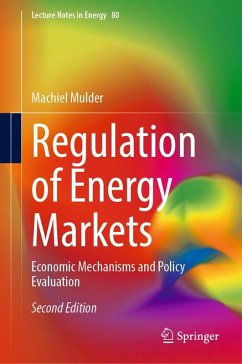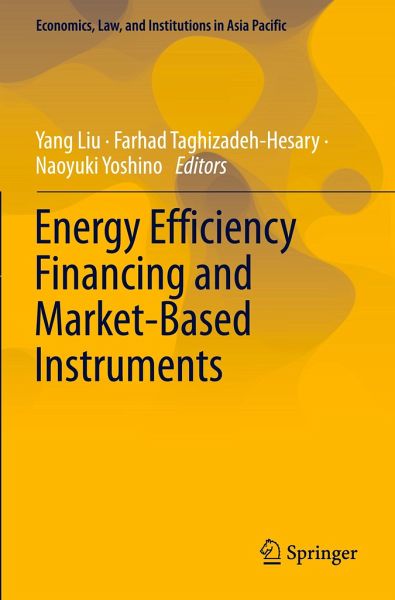
Energy Efficiency Financing and Market-Based Instruments
Versandkostenfrei!
Versandfertig in 6-10 Tagen
83,99 €
inkl. MwSt.

PAYBACK Punkte
42 °P sammeln!
This book is devoted to investigating the policy design and effectiveness of financial and market-based instruments to promote energy efficiency financing. The concept of this monograph is to present the latest results related to energy efficiency funding schemes, energy efficiency obligations, voluntary agreements, auction mechanisms, and Super Energy Services Companies (Super ESCOs) in major jurisdictions across the world. The book focuses on financial and market-based instruments as they deliver a price signal, which provides an incentive for firms to invest in innovation or implement more ...
This book is devoted to investigating the policy design and effectiveness of financial and market-based instruments to promote energy efficiency financing. The concept of this monograph is to present the latest results related to energy efficiency funding schemes, energy efficiency obligations, voluntary agreements, auction mechanisms, and Super Energy Services Companies (Super ESCOs) in major jurisdictions across the world. The book focuses on financial and market-based instruments as they deliver a price signal, which provides an incentive for firms to invest in innovation or implement more energy-efficient technologies and deliver energy savings while minimizing costs. Such instruments can have significant advantages for the government, supporting the fiscal sustainability of the government's energy efficiency efforts, requiring less enforcement than regulation and according the market flexibility to select the most cost-efficient technologies. This book is highly recommended to researchers, policy experts, and business specialists who seek an in-depth and up-to-date integrated overview of energy efficiency financing.





